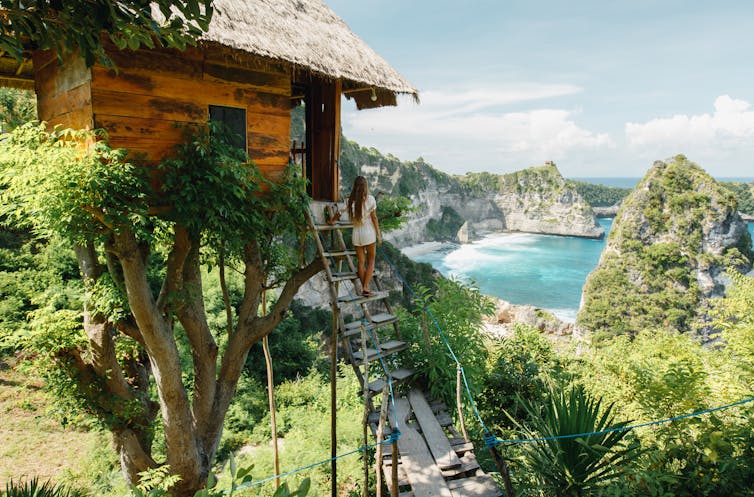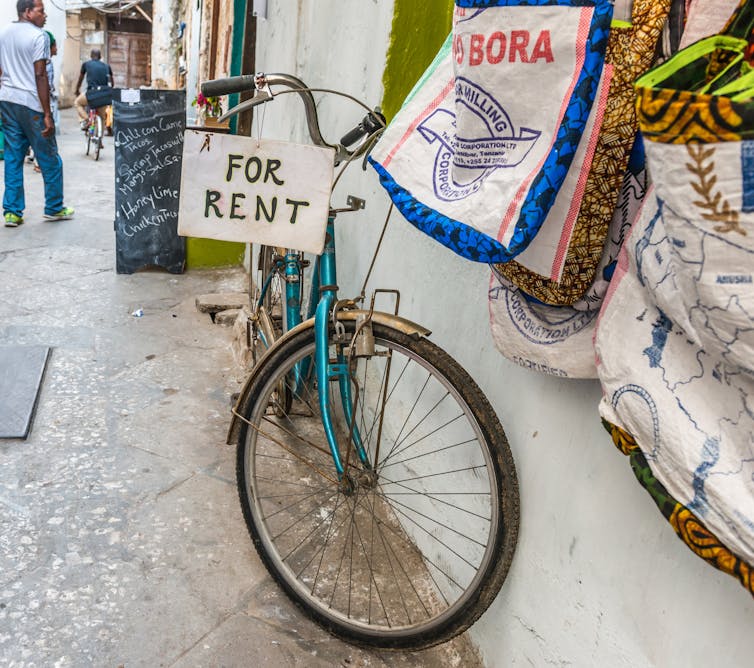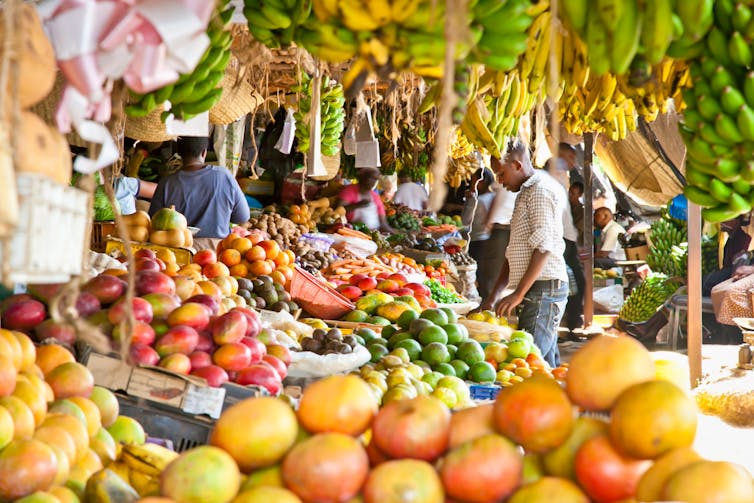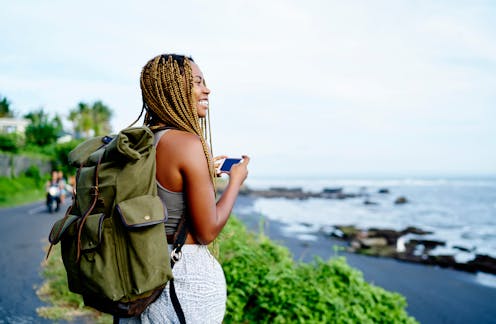COVID-19 has resulted in the most severe disruption to the global tourism industry in modern times. And although many countries have now reopened to visitors from overseas, the economic impact is likely to be felt for many years.
Prior to the pandemic, awareness had been growing regarding the environmental sustainability of tourism. From over-consumption of precious resources to the destructive impact on natural habitats, tourism can put enormous strains on destination communities.
Overtourism has also been highlighted as an issue in many places. The Galapagos Islands, Machu Picchu, Mount Everest, Majorca, Barcelona and Venice have all felt the affects.
Meanwhile, Greta Thunberg’s climate-change activism has added the term “flight shame” to our vocabulary. Her work has encouraged airlines to engage in tree planting or invest in wind farms to offset their carbon emissions, and travellers to think before they fly.
As global restrictions begin to ease, now is a good time to think radically about the purpose of tourism and the way we all travel. This is a chance to reset everything we know – and not simply return to business as usual.
Obviously, one of the difficulties is that many of us are used to going wherever we want, whenever we want – which is not sustainable. But a few changes to our travel plans can play a key role in shaping the future of the travel industry.
Below are five suggestions to help you travel in a more purposeful way.
1. Choose carefully
Carefully consider your desired destination and avoid places impacted by overtourism. Visiting during off-peak seasons will likely save you money and enhance your overall experience - and let you skip the queues.
It’s also worth thinking about a different type of “holiday” or travel experience. You could volunteer for a local NGO or consider travel opportunities that support marginalised groups, for example.

2. Travel slowly
Travel like Greta to minimise your environmental impact. Travel less for longer, swapping the quantity of experiences for quality. Instead of taking three separate long weekends, why not take just one two-week holiday.
Slow travel is a mindset. Rather than pursuing Instagram-worthy photos and trying to squeeze as many attractions into your trip as possible, leave your phone at home and explore each destination at your own pace.

Keeping sustainability in mind, it’s also worth considering opportunities that allow you to slowly experience a certain city, country or region while supporting local projects. Try a walking tour that supports previously marginalised locals or rent a bike with purpose and help to fund educational programmes for local students.
3. Plan how you spend
Wherever you go, make sure you seek out local initiatives including local guides and local accommodation providers. This will make sure your money goes directly to people who will benefit from your support.
Sites such as Good Travel list businesses that prioritise environmental action and support local communities. You can also find out about locally made products sold at local businesses employing local people. This helps to ensure positive impacts remain in the community.
And if you’re thinking of heading to Africa, Fair trade tourism is also a great resource to find out about businesses recognised for promoting responsible practices. Certified businesses range from eco-lodges, resorts, safaris, educational centres, township tours, golf clubs and cruises – so there are a lot of different options to choose from.
4. Eat like a local
Food accounts for over a quarter of global greenhouse gas emissions, so it lies at the heart of tackling climate change, reducing water stress, pollution and restoring land.
There are many ways to minimise your food miles when you travel. For a start, avoid eating at restaurant chains and instead, try to eat like a local. Visit markets, local neighbourhoods or local vendors for your foodie needs.

You could even check out a food tour or meal-sharing host. Traveling Spoon has a whole host of online and in-person cooking classes with locals from around the world. Eating locally supports local jobs and can also teach you about new cuisines.
5. Immerse yourself
An immersive type of travel prioritises people over places and avoids overcrowded spaces. This allows you to make real connections and can also help you gain insights about local traditions, cultures and history. For example, you could go trekking with a local guide, enrol in a language course or attend a local festival or event.
Ultimately, the pandemic has presented an opportunity to rethink and act radically and really consider the actual purpose of tourism. This is not only important from an environmental perspective, but travelling in a more purposeful way is more likely to help support local people in destination communities. And it also helps to contribute to a future where tourism is less harmful to people, places and the planet.



